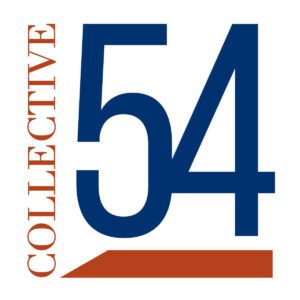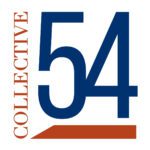Episode 7: The Boutique: Move Beyond the Billable Hour and Monetize Your Intellectual Property
You have more intellectual property than you think, and you can monetize it. In this episode of The Boutique podcast, Sean Magennis and Greg Alexander discuss how professional services firms can learn how to monetize their intellectual property to better attract acquirers when selling their business.
Various Speakers [00:00:01] You can avoid these landmines. It’s a buy versus build conversation. What’s the root cause of that mistake? Very moved by your story. Dive all into the next chapter of your life.
Sean Magennis [00:00:15] Welcome to the Boutique with Capital 54, a podcast for owners of professional services firms. My goal with this show is to help you grow, scale and sell your firm at the right time for the right price and terms.
I’m Sean Magennis, CEO of Capital 54 and your host. In this episode, I’ll make the case that you have more intellectual property than you think and that you can monetize it. I’ll try to prove this theory by interviewing Greg Alexander, Capital 54’s chief investment officer. Greg is an expert in helping professional services firms monetize their intellectual property. Greg, let’s start with the basics. What is intellectual property?
What is Intellectual Property?
Greg Alexander [00:01:06] Yep, that is the right question to lead with, and I would tell you that boutiques are very confused about intellectual property. Some of them think that they have a lot when they really don’t have any, and others think that they don’t have any, but they’re sitting on a goldmine. This confusion gets cleared up when you attempt to sell your boutique very quickly.
So if you have real intellectual property, investors will place a value on it. If you do not, investors will not consider it in their valuation. So this begs the following questions: What is intellectual property? And how do professional services boutiques create it?
So, roughly speaking, intellectual property is an invention to which one owns the rights, and these rights are protected by patent copyrights or trademarks.
Sean Magennis [00:01:51] Excellent. So I’m going to use the term IP for intellectual property. What are some examples of IP in the professional services industry?
Intellectual Property Examples in the Professional Services Industry
Greg Alexander [00:02:00] Yeah. So firms create intellectual property regularly . So, for instance, many consultants published books. These books are protected by copyright. Consultants turned authors receive royalty payments from their publishers. Some boutiques collect benchmark data.
They then license access to this benchmarking database to clients. A licensing agreement protects this benchmark data asset. Boutiques often create innovative methodologies to solve certain problems. They frequently enter into licensing agreements with third parties. These third-party firms pay a licensing fee to the boutique.
This grants them the right to use the methodology. If these third parties violate the licensing agreement, they can be sued. It is not uncommon for both teams to convert their knowledge into tools. These days, these tools are turned into software applications. The clients of the professional services boutiques pay perceived license to use these tools, but if the application licensing agreement is in breach, the boutique can seek damages.
Yet, other boutiques create certification programs that validate someone’s experience. Individuals pay boutiques to become certified in a specific skill. A popular example of that is PMP, a project manager professional. If an individual falsifies a certification, they can be taken to court.
So these are some examples of intellectual property inside a professional services firm and how creative professional services firms monetize this intellectual property. And as a result of that, how they can move beyond the revenue stream defined by the billable hour.
How to Monetize Intellectual Property As a Professional Services Firm?
Sean Magennis [00:03:51] Great examples, Greg. So professional services firms owners have lots of ways to make money and monetize this intellectual property. Boutiques that have real intellectual property are selling services. They’re not selling bodies. This distinction is why they are considered a professional service.
Acquirers are not interested in buying subcontractor body shops. They’re interested in buying professional services firms, and intellectual property is the key difference. Greg, do you have a war story you can share that might help the audience understand this a little better?
Greg Alexander [00:04:28] I’ve got a great one.
Sean Magennis [00:04:29] Excellent.
Greg Alexander [00:04:30] So I was advising a civil engineering firm about a year ago. The owner was truly brilliant, and he was a giant in his field, and he had an amazing way to hire and make profitable inexperienced engineers, and I would tell you that this was his secret sauce.
So, this inexperienced labor was cheap, and it allowed him to charge his clients less, and as a result, he won most of the bids he submitted. He wanted to sell his firm. He hired an investment banker, and a month later, the banker fired him. This doesn’t happen often.
And he told me, the banker said that his firm was not sellable. Nobody was going to buy it, and the reason no one was gonna buy it was because he had no intellectual property. He was a body shop filled with kids working for cheap. He disagreed with the banker. This brilliant entrepreneur began to explain to me his proprietary methods, and they were impressive, and he was very proud of them.
I interrupted him and asked how these methods were protected. Were there any patents, copyrights, or trademarks? And the answer was no. And that’s OK. I then asked him if this secret sauce was generating any revenue. And the answer was also no.
His clients were not paying for the right to use any of it. The clients were simply asking him to perform a job. At the completion of the job, he was paid a fee. So I had to agree with the banker. He was a body shop.
There was no intellectual property. He wasn’t a professional services firm. He was making a great living, and there’s nothing wrong with that. But he had no leverageable assets. There was nothing really to buy. So that is why investors were not interested in his firm.
Sean Magennis [00:06:22] I’m assuming a large percentage of boutiques like this, the great lifestyle businesses, they’ll produce an excellent living for the owners for years to come, and there’s nothing wrong with this. However, they are not the boutiques that owners can sell.
If your goal is to sell your firm, then it is important that you have intellectual property. Greg, excellent conversation on intellectual property inside of our professional services industry.
Greg Alexander [00:06:54] There’s one thing I’d like to add here if I can.
Sean Magennis [00:06:56] Yes, of course.
Greg Alexander [00:06:58] You know, I started out by saying that intellectual property was if you had trademark copyright or patent, and obviously, you have those three things, that’s definitive proof. Another way to prove that you have IP is it shows up in you in your billings.
So, for example, if you’re selling a service and the going rate for that service is 500 dollars an hour, and you’re getting 600 dollars an hour, and the difference there is 100 dollars, you can prove that someone’s willing to pay you more for the right to use your intellectual property.
That’s something beyond providing labor that’s attracting to them and the savvy investor, which I’d like to think Capital 54 is, we don’t rule somebody out.
Sean Magennis [00:07:41] Yes.
Greg Alexander [00:07:41] If they don’t have a patent, copyright, or trademark. We looked to see, you know, what type of fees are they generating? What’s the quality of those fees relative to the others in the marketplace? And if they’re getting a premium, that’s proof, at least as far as I’m concerned, that there really is intellectual property there.
Sean Magennis [00:07:58] An excellent distinction. Greg, thank you.
Sean Magennis [00:08:04] We will be right back after a word from our sponsor. Now, let’s turn the spotlight on Collective 54 members who are making an impact in the professional services field.,
Collective 54 is the only national peer-to-peer advisory network for owners of professional services firms who are focused exclusively on growing, scaling, and maximizing business valuation. Today, we have the pleasure of introducing you to Lawrence King, founder and CEO of Headstorm, a high-powered technology consultancy dedicated to building innovative technical solutions for fast-growing startups all the way to Fortune 500 companies.
Lawrence King [00:08:49] My name is Lawrence King, and I’m happy to be featured on this podcast. Headstorm is a product and engineering firm focused on building data platforms and digital software solutions. We have a unique approach and mindset in our industry that we measure our success not just by building digital solutions but also on ensuring our solutions capture the intended ROI.
We do this through strong product design thinking, effective engineering practices, and a sales enablement strategy to help our clients bring these solutions to market. My primary focus at Headstorm is building our culture and capabilities from the inside out. This means we design, engineer, and incubate our own products and are constantly improving and refining the processes and methodologies we bring to our clients.
Part of the idea behind drinking our own champagne is that we have developed a culture of experimentation and professional growth that produces next-gen consultants highly capable of solving 21st-century problems.
Sean Magennis [00:09:41] Please get to know Lawrence and other business owners who are leading innovation in the professional services industry by visiting Collective54.com. Learn more about how Collective 54 can help you accelerate your success.
10 Questions Professional Services Firms Should Ask When Monetizing Intellectual Property
Sean Magennis [00:09:59] So, in an effort to provide immediate takeaway value for you today, I’ve again prepared ten questions. Yes, no checklist. Please ask yourself these ten questions and remember, if you answer yes to eight or more of these questions, you have a real monetizable intellectual property that will attract a buyer.
- Do you have any patents?
- Do you have copyrights?
- Do you have any trademarks?
- Are you generating revenue by granting the right to use your intellectual property to anyone?
- Are you collecting data that clients will pay to have access to?
- Are you inventing methodologies that third parties will pay to be able to use?
- Are you coding your knowledge into licensable application tools?
- Will individuals pay you for a certification to validate their skills?
- Are you a true professional services firm and not a body shop?
- Is it crystal clear to a potential buyer that your boutique is not just a well-run lifestyle business?
Sean Magennis [00:11:41] There’s a lot of confusion as to what intellectual property is. A boutique with true intellectual property is a very valuable one. There are many ways to codify knowledge to leverage intellectual property. Lifestyle businesses progress into highly valued boutiques when this intellectual property is created.
Sean Magennis [00:12:05] If you enjoyed the show and want to learn more, pick up a copy of Greg Alexander’s book titled “The Boutique How to Start Scale and Sell a Professional Services Firm.” I’m Sean Magennis. Thank you for listening.


